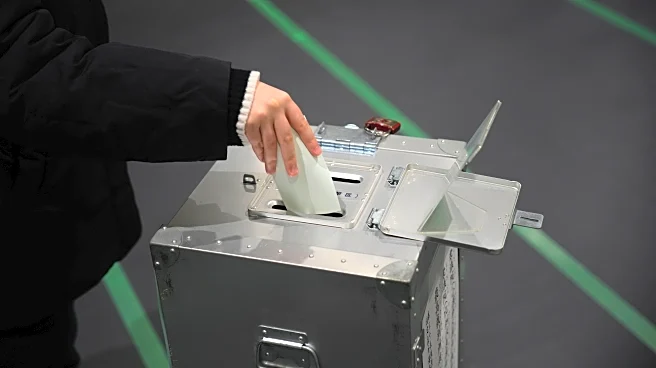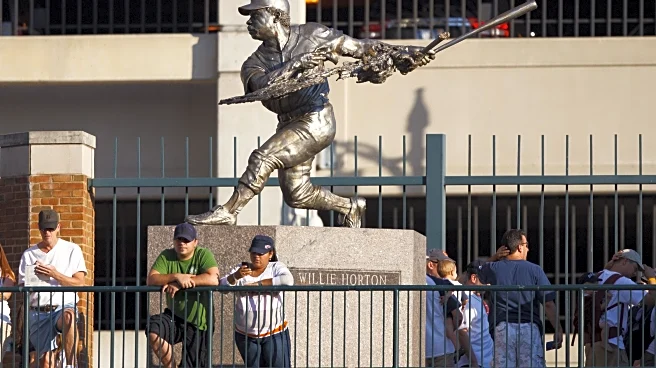What's Happening?
Chief Justice John Roberts of the U.S. Supreme Court has issued an administrative stay, temporarily allowing the Trump administration to freeze billions in foreign aid payments. This decision pauses a lower court ruling that required the spending of $4
billion by the end of the month. The aid, which includes funds for global health and HIV programs, was approved by Congress but deemed wasteful by President Trump. The administration has been contesting lower court orders that blocked its efforts to curtail foreign aid spending. The Supreme Court's temporary order provides the justices more time to review the case, with the groups challenging the move required to respond by Friday afternoon.
Why It's Important?
The Supreme Court's decision to allow a temporary halt on foreign aid spending has significant implications for U.S. foreign policy and international relations. The aid in question supports global health initiatives and HIV/AIDS programs, which are critical for many countries. The administration's stance reflects a broader policy shift towards reducing foreign aid, which could impact U.S. influence abroad and its ability to support international health efforts. The decision also highlights the ongoing tension between the executive branch and Congress over spending authority, with potential consequences for how future appropriations are handled.
What's Next?
The Supreme Court's administrative stay is temporary, and the case will continue to be reviewed. The groups challenging the aid freeze must respond to the court by Friday, which could influence the justices' final decision. If the court ultimately sides with the Trump administration, it may set a precedent for the executive branch's ability to unilaterally alter foreign aid spending. This could lead to further legal challenges and impact negotiations to avoid a government shutdown, as the administration seeks to use a 'pocket rescission' to cancel the spending unless Congress intervenes.
Beyond the Headlines
The legal battle over foreign aid spending raises questions about the balance of power between the executive and legislative branches. The administration's attempt to withhold funds approved by Congress challenges traditional constitutional structures and could lead to broader debates about executive authority. Additionally, the decision may affect the U.S.'s role in global health initiatives, potentially altering its reputation and relationships with international partners.
















